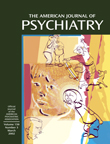Childhood Adversities Associated With Risk for Eating Disorders or Weight Problems During Adolescence or Early Adulthood
Abstract
OBJECTIVE: A community-based prospective longitudinal study was conducted to investigate the association between childhood adversities and problems with eating or weight during adolescence and early adulthood. METHOD: A community-based sample of 782 mothers and their offspring were interviewed during the childhood, adolescence, and early adulthood of the offspring. Childhood maltreatment, eating problems, environmental risk factors, temperament, maladaptive parental behavior, and parental psychopathology were assessed during childhood and adolescence. Eating disorders and problems with eating or weight in the offspring were assessed during adolescence and early adulthood. RESULTS: A wide range of childhood adversities were associated with elevated risk for eating disorders and problems with eating or weight during adolescence and early adulthood after the effects of age, childhood eating problems, difficult childhood temperament, parental psychopathology, and co-occurring childhood adversities were controlled statistically. Numerous unique associations were found between specific childhood adversities and specific types of problems with eating or weight, and different patterns of association were obtained among the male and female subjects. Maladaptive paternal behavior was uniquely associated with risk for eating disorders in offspring after the effects of maladaptive maternal behavior, childhood maltreatment, and other co-occurring childhood adversities were controlled statistically. CONCLUSIONS: Childhood adversities may contribute to greater risk for the development of eating disorders and problems with eating and weight that persist into early adulthood. Maladaptive paternal behavior may play a particularly important role in the development of eating disorders in offspring.



